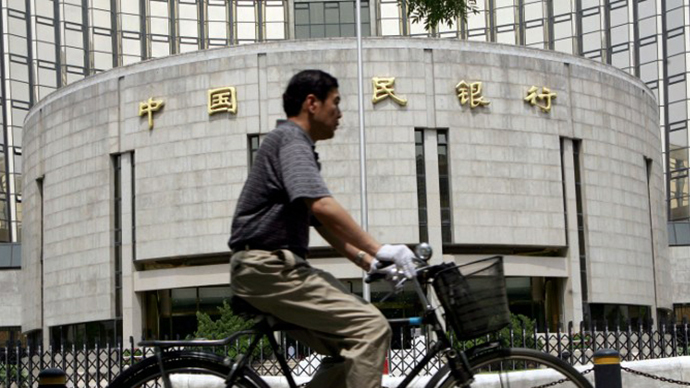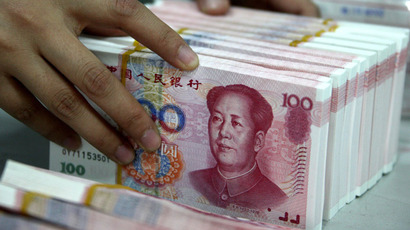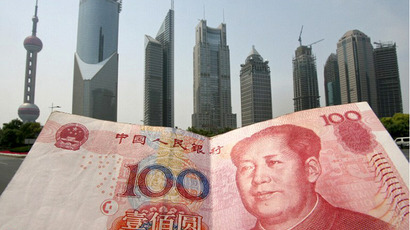Lend to spend: China loosens grip on interest rate regime

China’s central bank has removed controls on lending, and will now let financial institutions self-regulate rates which were previously constrained by a 70 percent floor benchmark.
As China enters a new paradigm, characterized by healthier and
sustained growth, it is slowly moving to ‘free’ its economy of
government controls in the hope of driving credit ratings and the
real economy.
The central bank jettisoned the lower limit for commercial
interest rates and eliminated its control on discounted bills,
which are used as in business-to-business payments in China.
Saturday is the first day the new set of rules come into effect.
"This will support the real economy and improve economic
restructuring and upgrading," the central bank said in a
statement on their website.
The People's Bank of China didn't make any changes to its
authority over deposit rates or mortgage lending.
China has long set a ceiling for bank-deposit rates and a floor
for lending rates, which created an artificially high gap between
the two, which yielded state banks with extra cash to feed into
the fast-growing economy, which has slightly hampered consumption
in China, compared with European countries and the US.
Lifting the ceiling on deposit rates would help spur domestic
consumption as a driver of economic growth, which will decrease
reliance on exports and make the Chinese economy more
self-sufficient, and less dependent on foreign investment.
Interest rates are next
Before China decides to fully ‘open’ its economy and relinquish
full control on capital flowing in and out of the country and
jettison its ‘fixed’ currency, it will need to liberalize its
interest rates.
The European Union has cut its interest rates to record lows to
foster growth, but the Chinese government has indicated this is
not the direction they’re heading, at least not yet.
Officially, China’s goal for 2013 is economic reform towards convertibility, but the
government has been reluctant to free up interest rates out of
concern that it would hurt the profitability of Chinese banks by
forcing them to compete for deposits.
China’s booming, almost fairytale economic story, has developed
five-fold over the last 23 years, aided by an emerging middle
class, cheap labor, and an export driven strategy, but the recent
departure from traditional central banking has signaled China has
entered a new phase of modesty.
Chinese GDP growth slowed to 7.5 percent in the second
quarter.














